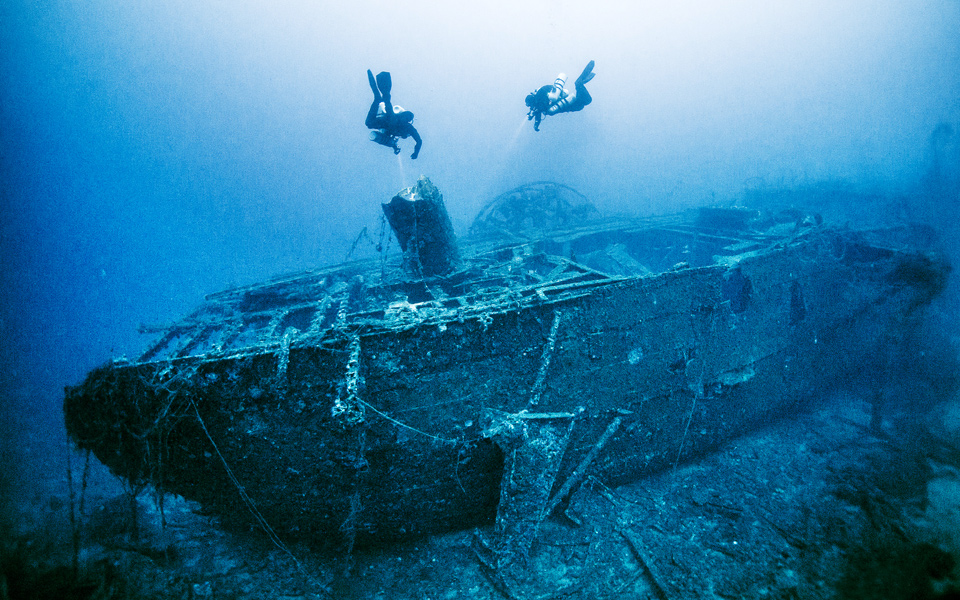Antonios (Holy Diver)
Registered
The current video is a shortened edition of an episode aired in 1985 in Greek state TV, as part of the documentary series “The Magic of Greek Depths”. The creator, diver Alexis Papadopoulos, was an environmentalist and among the pioneers of underwater videography in Greece. Along with his daughter Christina they documented several aspects of diving activities in greek seas.
According to the narrator (sadly, no CC available) “The red coral is harvested at great depths, between 70-110 meters. Dives at such depths are akin to Russian Rulette. The bottom time for these depths is between 8-12 minutes”. The documentary depicts two consecutive dives of two different coral miners. The first dive is exploratory, as the diver marks the exact position of a coral reef and brings up a specimen of red coral for evaluation. Then, the second diver plunges into a depth of 80 meters (262 feet), where he plans to stay for 11 mins. There he commences the harvesting and experiences the first symptoms of nitrogen narcosis. After a slight exceedance of his planned bottom dive (+2 mins), he ascends. His decompression schedule includes stops at 12 ,9, 6 and 3 meters. At shallow depths he switches to pure oxygen for accelerated decompression and surfaces after a total deco time of 50 minutes.
Apart from the ethical and environmental considerations of coral mining, this documentary has its own value, as it gives hints of commercial diving techniques used at an era that scuba diving was almost non existent in Greece. (The decades-long, nation-wide ban on recreational diving in Greece was lifted in 2005. Till then, the only scuba divers in Greek waters were military and a handful of civilians - mainly commercial divers, sponge divers and some archaeologists of the Greek Ephorate of Marine Antiquities)
According to the narrator (sadly, no CC available) “The red coral is harvested at great depths, between 70-110 meters. Dives at such depths are akin to Russian Rulette. The bottom time for these depths is between 8-12 minutes”. The documentary depicts two consecutive dives of two different coral miners. The first dive is exploratory, as the diver marks the exact position of a coral reef and brings up a specimen of red coral for evaluation. Then, the second diver plunges into a depth of 80 meters (262 feet), where he plans to stay for 11 mins. There he commences the harvesting and experiences the first symptoms of nitrogen narcosis. After a slight exceedance of his planned bottom dive (+2 mins), he ascends. His decompression schedule includes stops at 12 ,9, 6 and 3 meters. At shallow depths he switches to pure oxygen for accelerated decompression and surfaces after a total deco time of 50 minutes.
Apart from the ethical and environmental considerations of coral mining, this documentary has its own value, as it gives hints of commercial diving techniques used at an era that scuba diving was almost non existent in Greece. (The decades-long, nation-wide ban on recreational diving in Greece was lifted in 2005. Till then, the only scuba divers in Greek waters were military and a handful of civilians - mainly commercial divers, sponge divers and some archaeologists of the Greek Ephorate of Marine Antiquities)







